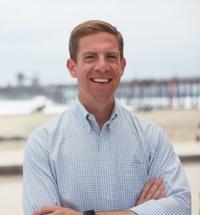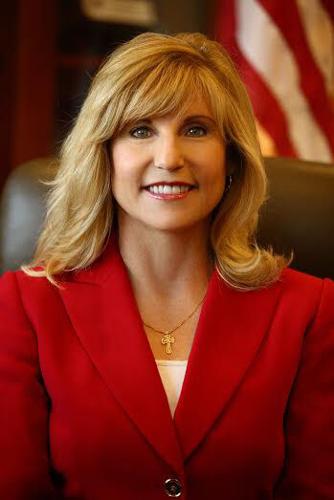Introduction by Managing Editor Shawn Raymundo
Vote-by-mail ballots have begun to hit constituents’ mailboxes this week as California’s Primary Election is less than a month away. In an effort to give our readers more insight into the slate of candidates vying for seats in major local elected offices, we’ve given those running an opportunity to respond to some questions related to issues impacting South Orange County.
Every district-area candidate seeking office in the State Senate and Assembly, Orange County Board and U.S. House of Representatives was given three questions and asked for 400-word responses to each.
Some candidates did not submit responses to our questions. Space for their responses was left blank.
*Denotes incumbent
QUESTION 1:
Over the past year, we’ve seen inflation soar as a result of supply-chain disruptions, higher demand on goods and services, as well as impacts to the food and energy markets in the wake of Russia’s invasion of Ukraine. Do you have any plans or ideas on mitigating these effects on a national level?

LVN and BusinesswomanNadia Smalley
Yes, on a national level we have growers and farmers here in the United States; we need to use our own commodities here within our nation, buy American, farm American. We can bring ourselves out of this deficit; there shouldn’t even be any supply chain disruptions or demand on goods and services, food and energy. There should be no way our market should be depreciated. How about we invest in our own stores as individuals, and start our own rule farms, investing in that we have so much uncharted unexplored land that would supply great vegetation for us. I don’t understand why we as a whole collective, Democrat and Republican and all others, need to work together to resolve this issue. There is no divide when we go inside Smart & Final to shop for food. There’s no Republican cashier and no Democratic cashier when we go into the store or any place else we shop and have the same experience, so we should be able to come together with that same notion and resolve issues in the same manner, having the same experience together with a resolution for all; that we catapult our nation forward as we need to be.

OC Board Supervisor Lisa Bartlett
The Biden administration is using Russia as a scapegoat for their own policy failures that are driving inflation and weakening the American economy. They have overregulated American businesses, destroyed our energy independence, made weak foreign policy decisions that have emboldened countries like Russia, and are consistently trying to raise taxes and costs on the middle class. I would strongly oppose trillions of dollars in additional debt and wasteful government spending. I would also work to stabilize the supply chain, increase American manufacturing, and oppose tax hikes and overregulation, which only increase the burden on American families.

Former San Juan Capistrano Councilmember Brian Maryott
The American people started feeling the effects of rising prices long before Russia invaded Ukraine. The Biden administration has been attempting to deflect criticism concerning their failed policies with every inflation report released by the Bureau of Labor Statistics. Stagflation has been staring the current administration in the face for a while now, and unfortunately, our Commander-in-Chief has chosen to hide behind current events, instead of facing our economic problems head-on. First, the American people were told inflation was imaginary, then transitory, and now we’re told it’s Vladimir Putin’s fault. The Biden administration has prioritized passing massive multi-trillion-dollar spending programs amidst an already rising inflation rate since the pandemic lockdowns began. Our nation needs real leadership in Washington that prioritizes the needs of the American working class, not the lofty out-of-touch desires of career politicians that are relatively immune to the effects of a failing economy. As a congressman, I will work toward reducing the cost of living for ordinary Americans through an adherence to a fiscal conservatism that checks the power of D.C. bureaucrats that have clearly shown a disregard for the financial woes of everyday Californians. We need strict caps on federal spending and a regulatory environment that supports private businesses across America. The federal government has accumulated a national debt of $30 trillion. The last thing this country needs is more big-government “solutions” to rising inflation.

Rep. Mike Levin*
I know many families are feeling the pain of higher prices for things like food and gas. Despite wages rising for workers and strong economic growth, inflation is straining household budgets, and I support using every tool at our disposal to bring down costs and help Americans make ends meet. Higher-than-normal inflation around the world is largely the result of unprecedented economic disruptions from the pandemic, which have created backlogs in supply chains. Decades of disinvestment in America’s infrastructure left our supply chains vulnerable to shocks. In Congress, I’m focused on helping Americans deal with rising costs. Through the bipartisan infrastructure law, we are repairing our supply chains and infrastructure to ease bottlenecks and make more here at home. When it comes to high gas prices, I support a windfall profits tax on Big Oil, where we send the proceeds back to people paying the price at the pump. This proposal would impose a per-barrel tax on the largest oil companies based on the difference between the current price of oil and the pre-pandemic price. That tax revenue would go directly back to average Americans while incentivizing oil companies to increase production to meet demand. The Federal Reserve also plays the primary role in helping our economy achieve full employment and stable prices. The Fed provided important support during the pandemic, and it is appropriate and necessary for them to recalibrate that support, as Chair Powell has indicated. The Fed is widely expected to take action to combat inflation, as they should.

Sheriff’s Deputy Josiah O’Neil
Failed policies at home like overregulation, overtaxation, and overlitigation have negatively affected Americans from a gallon of milk to a gallon of gas. I will propose or support legislation to offer immediate tax relief to working families in the United States in the form of tax credits, sales tax holidays, and exploring domestic energy resources.

Cybersecurity and Military Officer Renee Taylor
Cybersecurity and Military Officer Renee Taylor
I exclaim “bullfeathers!” to the notion that high inflation, gas prices, and other costs are due largely to the three P’s: Pandemic, Putin and Price-Gouging. The economic issues facing Americans are a result of the current administration and its aversion to adjust course—resulting in what some refer to as “bideninflation”—which is crushing Americans. For our ability to be self-sufficient and flourish, we must be allowed to grow free of burdensome regulations and taxes. As Calvin Coolidge noted, “A government which lays taxes on the people not required by urgent public necessity and sound public policy is not a protector of liberty, but an instrument of tyranny.” Unfettered government spending and supply chain issues contribute to rampant price increases and inflation. As the government spent, consumers did likewise on limited amounts of products and services—creating surging prices. As I understand it, we are currently experiencing Cost-Push Inflation—due to higher oil prices, supply-chain issues due to overreliance on foreign resources and goods, logistics issues, and rising commodity and food prices. Since the economy is driven by many different factors, economic solutions must be multi-faceted such as monetary, fiscal, and supply-side policies. From a logistics and supply perspective, solutions include building or encouraging more shipping capacity, which could help in the long-term, and creating a resilient network of American resources, manufacturing, and distribution. Relief can also come from expanding oil and gas resources and production, and reducing or eliminating the gas tax.
The current budget calls for trillions in spending. In fact, I have already conducted an initial review of the FY 2022 Federal Budget ($3.5 Trillion) (whitehouse.gov/wp-content/uploads/2021/05/appendix_fy22.pdf) and identified billions of dollars in questionable programs. A few examples include “global fragility,” the “National Endowment for Democracy,” and the “Millennium Challenge Corporation.” Another useful resource to research government spending is usaspending.gov. Billions in taxpayer dollars are going to other countries for food, health, and security, while Americans scrape by and feel unsafe in their own neighborhoods.
Ultimately, to ensure economic stability, we must insist that our elected representatives do a much better job at scrutinizing where our money is going, have the courage to highlight the waste, and thwart the unfettered spending. Per Coolidge, “One of the greatest favors that can be bestowed upon the American people is economy in government.”

Christopher Rodriguez
Oceanside Councilmember Christopher Rodriguez
Democrats have put the United States on an inflationary death spiral that must be stopped. The solution that the far-left in Congress continues to offer is more taxes and more spending financed by more government debt. This recklessness will drive America to ruin. In Congress, I will work to rein in the reckless spending that’s driving inflation, causing gas prices and groceries to skyrocket, and leaving California with the highest electricity prices in the United States. To lower energy costs, and strengthen national security, I will advocate for energy independence. We need to end our reliance on the cartels of the Middle East and Putin’s Russia, to keep our lights on and our cars running, and increase our domestic energy production. I support drilling on federal lands, safe fracking, and opening up the Keystone XL Pipeline.
Editor’s Note:The Rodriguez campaign submitted responses to our questions on May 13, after Picket Fence Media published its three newspapers.
QUESTION 2:
It’s widely agreed upon by local municipalities, community members and the region’s elected officials that the spent nuclear fuel stored at the decommissioned San Onofre power plant needs to be removed, and that it’s the federal government’s responsibility to locate interim and permanent repositories for the waste. If elected to Congress, what solutions and legislation would you propose to spur action in getting a national storage facility sited?

Smalley
I believe in a course to nuclear fuel reprocessing, nuclear fuel recycling. Perhaps the nuclear fuel can be safely sold, if not reused for homeland fuel. After the agreed sale or reusable measures are set in place, the nuclear fuel will then be taken out of San Onofre, then restored into another safe facility unanimously agreed upon by the community and the regions’ elected officials in Congress, or safely relocated by its new owner.

Bartlett
As a leader in the effort to safely decommission the San Onofre Nuclear power plant, this is an issue I have been championing for years and will continue to do so as a congresswoman. Currently, I am co-chairing Action for Spent Fuel Solutions Now—a broad-based coalition of all stakeholders—to pressure the federal government to act on securing a consent-based interim and permanent location for the spent nuclear fuel at the generating station. This is a job the federal government is already obligated to do, and should be doing. In addition, I am seeking the federal enabling legislation that will fund off-site storage, transport, disposal, and continual emergency preparedness and response activities related to the decommissioning of the facility through 2049.

Maryott
California’s beautiful San Onofre State Beach, just north of San Diego and on the southernmost tip of Orange County, is situated next to 3.6 million pounds of nuclear waste from decommissioned nuclear reactors. This issue represents one of the federal government’s biggest domestic policy failures in the last half-century. Unfortunately, decades of showboating and partisan politics have left this nuclear waste stranded indefinitely next to countless citizens and a pristine ecosystem. Under the U.S. Nuclear Waste Policy Act of 1982, the federal government was obligated to move nuclear waste into a remote and centralized federal facility. Despite this obligation, and after more than $15 billion was spent on researching and qualifying Yucca Mountain as a centralized disposal location, the Obama administration pulled the plug. Now, we continue to have waste buried in temporary accommodations in 35 different states—this is, of course, absurd, and incredibly dangerous. Redundant press conferences and useless Blue Ribbon commissions and local discussion panels won’t fix this problem. As a congressman, I will immediately join the effort in Congress to restart the Yucca Mountain process, while supporting tangible interim storage strategies that involve public-private partnerships. The humanitarian and ecological disaster that would ensue as a result of big government’s inaction, in regard to the decommissioned San Onofre power plant’s nuclear waste, makesthe issue of responsible nuclear waste disposal an urgent matter for my campaign.Nuclear power isn’t the problem. The problem is a government that operates like a bureaucratic machine and is characterized by political grandstanding, which has enabled a near criminal lack of resolve to get something done on this pressing issue once and for all.

Levin
Addressing the spent nuclear fuel at San Onofre Nuclear Generating Station (SONGS) has been one of my top priorities since I first ran for office, and I am proud to have made real bipartisan progress since I took office in addressing many of the challenges associated with moving the waste out of our community. One of the first actions I took as a member of Congress was to form a SONGS Task Force of experts and community leaders around the region to identify policy solutions. The SONGS Task Force released a comprehensive report containing recommendations on how to address the safe storage and removal of nuclear waste from our coast. Informed by the recommendations of the SONGS Task Force, I introduced bipartisan legislation with Rep. Darrell Issa and others to expedite the removal of nuclear waste from decommissioned plants in areas with high population density and seismic hazard, such as San Onofre; repeatedly pushed the Nuclear Regulatory Commission (NRC) to increase oversight at San Onofre; created a bipartisan Spent Nuclear Fuel Solutions Caucus in Congress; and led legislation that was signed into law to spur innovation and research in the storage, transportation, and disposal of spent nuclear fuel. I also secured federal funding that has allowed the Department of Energy to restart a consent-based siting program. Just last month, I hosted Department of Energy Secretary Jennifer Granholm at the San Onofre Nuclear Generating Station to push for federal action in getting the waste off of our beach. She announced that as a result of the interim storage process I helped fund, the federal government plans to provide money to communities that may want to host the waste. Safely and quickly removing the waste from San Onofre will continue to be one of my top priorities for as long as I have the honor to serve this district.

O’Neil
I would immediately propose legislation to expand energy supply, including new nuclear reactors and national disposal sites, and federal payment for relocation and long-term storage would be part of that proposal.

Cybersecurity and Military Officer Renee Taylor
Taylor
According to the Government Accountability Office (GAO), “There are about 86,000 metric tons of spent nuclear fuel from commercial reactors stored at 75 U.S. sites. This amount continues to grow. Policymakers have been at an impasse over what to do with the spent fuel since the licensing of the Yucca Mountain repository stopped in 2010. Unable to meet its disposal commitment, the U.S. government has paid reactor owners about $9 billion for storage.” Massive amounts of clean nuclear-generated electricity created spent nuclear fuel (SNF) over the last 40-plus years; siting and opening a repository for permanent disposal could take as many decades to establish. In the meantime, action must be taken to develop interim storage sites that can be licensed, built, and opened for SNF acceptance. Unfortunately, however, interim storage solutions for today may become tomorrow’s problem. In other words, interim may become permanentin the absence of a greater strategy. Current proposals denote interim storage for some 40 years, but it will take the United States well over 40 years to site, design, construct, and ultimately place spent nuclear fuel and high-level waste at a geologic repository. In December 1987, Congress amended the Nuclear Waste Policy Act (NWPA) to designate Yucca Mountain, Nevada, as the only site to be characterized as a permanent repository for all the nation’s nuclear waste. Since then, conflict and defunding have ensued. To break the impasse over a permanent solution for commercial spent nuclear fuel, Congress needs to authorize a new consent-based process for siting a repository. Finalizing legislation could help position the Department of Energy (DOE) to implement a consent-based process for consolidated interim storage facilities and/or permanent geologic repositories by amending the Nuclear Waste Policy Act (NWPA) to allow for storage and disposal options other than, or in addition to, the Yucca Mountain repository. Lessons learned from a global perspective show that other countries have made strides to reach consensus after comparable stalemates. For example, Canada, Sweden, and Finland designated sites after 17-30 years of public discourse. The path to yes may be long, but it is achievable.

Christopher Rodriguez
Rodriguez
We must safely decommission the San Onofre power plant and relocate all spent fuel nuclear waste. I would author a bill designating isolated federal lands as a national repository for spent nuclear waste. My bill would outline funding allocation and safety protocols for the relocation of all spent waste of nuclear facilities throughout the United States.
QUESTION 3:
Nations across the globe have felt the impacts of climate change, and here in California, we’ve seen record-setting wildfires, ongoing drought and coastal erosion. While efforts are being made to get more electric vehicles on the road and charging stations developed, what other tools do you believe the federal government—Congressional lawmakers, in particular—possess to further reduce greenhouse gas emissions?
Smalley
Well, I can stay for a while, far as will have to definitely employ more federal firefighters for this position and stand by for this event to take place; just be ready. As far as our ongoing drought, we have already put in place measures to conserve water during the day; reverse osmosis for ocean waters could be a tactic put in place for drought assistance. A tentative care approach from research groups, scientists and colleges, we would have to implement think tank groups to resolve this issue. I feel coastal erosion deserves funding for extensive deep water cleanup measures.
Bartlett
We must protect the environment, but I believe we can do so in an economically responsible way that benefits Americans instead of punishing them. As a congresswoman, I will continue to prioritize the protection of our coastline through practicable coastline resiliency initiatives. I have and will continue to support smart public and private investment in clean air initiatives. I oppose the expansion of offshore drilling in California and will always fight to hold polluters that destroy our environment accountable. In addition, I am helping lead the effort to safely decommission the San Onofre Nuclear power plant.
Maryott
Humanity’s negative impact on the environment is undeniable; however, the role bad environmental policy has played in California’s various ecological disasters, including the state’s worst wildfires, cannot be overstated. California’s deadliest wildfires in recent years have been decades in the making. As a congressman, I will work toward improving forest health and fire prevention through the use of prescribed and controlled burns to reduce the fuel load in forests and coastal chaparral, because leaving forests overgrown and unattended makes them prone to unusually destructive wildfires. Also, I will work toward holding corrupt gas and power companies responsible for the role they’ve played in causing destructive wildfires, like the Dixie Fire in Northern California. The Pacific Gas and Electric Company (PG&E), for instance, has been convicted of multiple felony crimes and has been deemed criminally negligent for years. This utility company, like many others, has direct ties to corrupt government officials, such as Gavin Newsom, who claim publicly that wildfires are simply a result of climate change, while simultaneously crafting legislation that protects the profits of negligent utility providers. Had these policy reforms, ensuring adequate forestry management and utility maintenance, been in place, the government would have largely prevented the enormous loss of life, property, and ecology that has occurred in recent years, and California’s forests would have been better equipped to survive an extended period of drought, similar to those that have been occurring long before industrialization.
Levin
Our district is home to more than 50 miles of beautiful California coastline and other cherished lands and waters like San Onofre State Park and the San Elijo Lagoon. Unfortunately, these natural treasures are threatened by the climate crisis, including more extreme heat waves and longer droughts fueling year-round wildfires, and rising sea levels and storm surges driving unprecedented coastal erosion. As a longtime advocate for climate action and member of the House Natural Resources Committee and Select Committee on the Climate Crisis, I have led aggressive legislation to protect our planet for future generations. One of the first bills I supported in Congress banned new offshore drilling along our coast. I also introduced the American Coasts and Oceans Protection Act to specifically ban new offshore drilling activity along the Southern California coast. Following the October 2021 oil spill off the coast of Orange County, I led the effort to advance legislation ending new drilling and strengthening oversight of offshore drilling companies. I know that we can protect our environment, combat the climate crisis, and grow our economy at the same time. California has proven it is possible, and I have used our success as a model for action in Washington. I introduced legislation to transition America to zero-emission vehicles (ZEVs), expand charging infrastructure, and convert Park Service and Forest Service fleets to ZEVs so that we can reduce greenhouse gas emissions and manufacture the cars of the future right here in America. I have also worked across the aisle on bipartisan efforts to combat climate change. I fought for the inclusion of provisions in the bipartisan infrastructure law to expand electric vehicle charging infrastructure, invest in the supply chain for batteries, provide $1.5 billion for clean hydrogen manufacturing, invest $550 million in the Energy Efficiency and Conservation Block Grant Program, and much more.
O’Neil
Federal government has an obligation to provide clean, safe, and reliable energy to states and communities. By building new nuclear reactors, we could provide all the clean power that our growing economy demands.
Taylor
Climate change—according to NASA, numerous events can cause climate change. Some examples include the Earth’s changing distance from the sun; the sun sending out more or less energy; and ocean change due to volcanic eruptions. Of course, human activities can impact environmental conditions as well, such as driving vehicles, heating and cooling buildings, and even cooking food. All these activities take energy (typically generated by coal, oil and gas).
There should not be a single point of success or failure for energy consumption or emission output—e.g., exclusively electric vehicles. A comprehensive plan for climate change would need to consider many facets. Interestingly, the priority needs of California are the very things that contribute to climate change. California needs more housing, which, in turn, inevitably means clearing lands and trees, which help regulate carbon dioxide. With the significant population, California landfills for garbage are a major source of methane emissions. All of the things that California needs—energy, industry, transport, buildings, agriculture, and land use are among the main emitters. Therefore, future planning needs to include balancing between the need for energy, housing, and transport and the wants to reduce climate change. Congress alone cannot combat climate change, but Congress can support rational initiatives—such as encouraging various renewable energy alternatives, promoting public transportation, and fostering innovation. Addressing and mitigating the effects of climate change starts on an individual and community basis. Simple steps such as adjusting heating/cooling settings in homes and buildings, using brooms instead of leaf blowers, planting trees, energy-efficient building codes, sensible waste management (reduce, reuse, recycle), and cleaning up all the garbage littering our freeways are all a good start. Public transportation used to be a safe and efficient means of commuting, but for many individuals, it is not a viable option. For example, just going 9 miles on a bus route can take three hours, and train rides between San Diego and Los Angeles can take hours longer than driving. By improving time and distance efficiencies, public transportation could be a favorable alternative. Congress, communities, and individuals can all be instrumental environmental stewards—without excessive regulation and partisan posturing. Paraphrasing a popular quote, alone we can do so little, together we can do so much.
Rodriguez
I believe that climate change is real and humans impact our environment. But there is a lot we need to learn about the impact. As a small business owner and farmer, my livelihood is directly dependent on the environment. Solutions to combat climate change need to be done in a smart way that doesn’t devastate our economy, like the Green New Deal. We shouldn’t be asked to solve a global problem by ourselves; my focus is not helping foreign countries, or activists, or special interests. Because when we hamstring America’s development, we give rise to the thugs of the world to take our place.
China is the world’s biggest polluter by far, Russia and India are not far behind. If America fulfills all of its climate promises, we will barely put a dent in greenhouse gas emissions. This is because the world’s biggest polluters are doing nothing to address global climate change. We need to keep in mind that conservatives, particularly Republicans, have always been leaders in conservation—Teddy Roosevelt was instrumental in the growth of America’s national parks system, and Richard Nixon led the formation of the Environmental Protection Agency.
Be sure to check out responses from the candidates running in the other local elections, including the 74th Assembly District, 36th Senate District, 38th Senate District, and Orange County Board Fifth District.
























































































